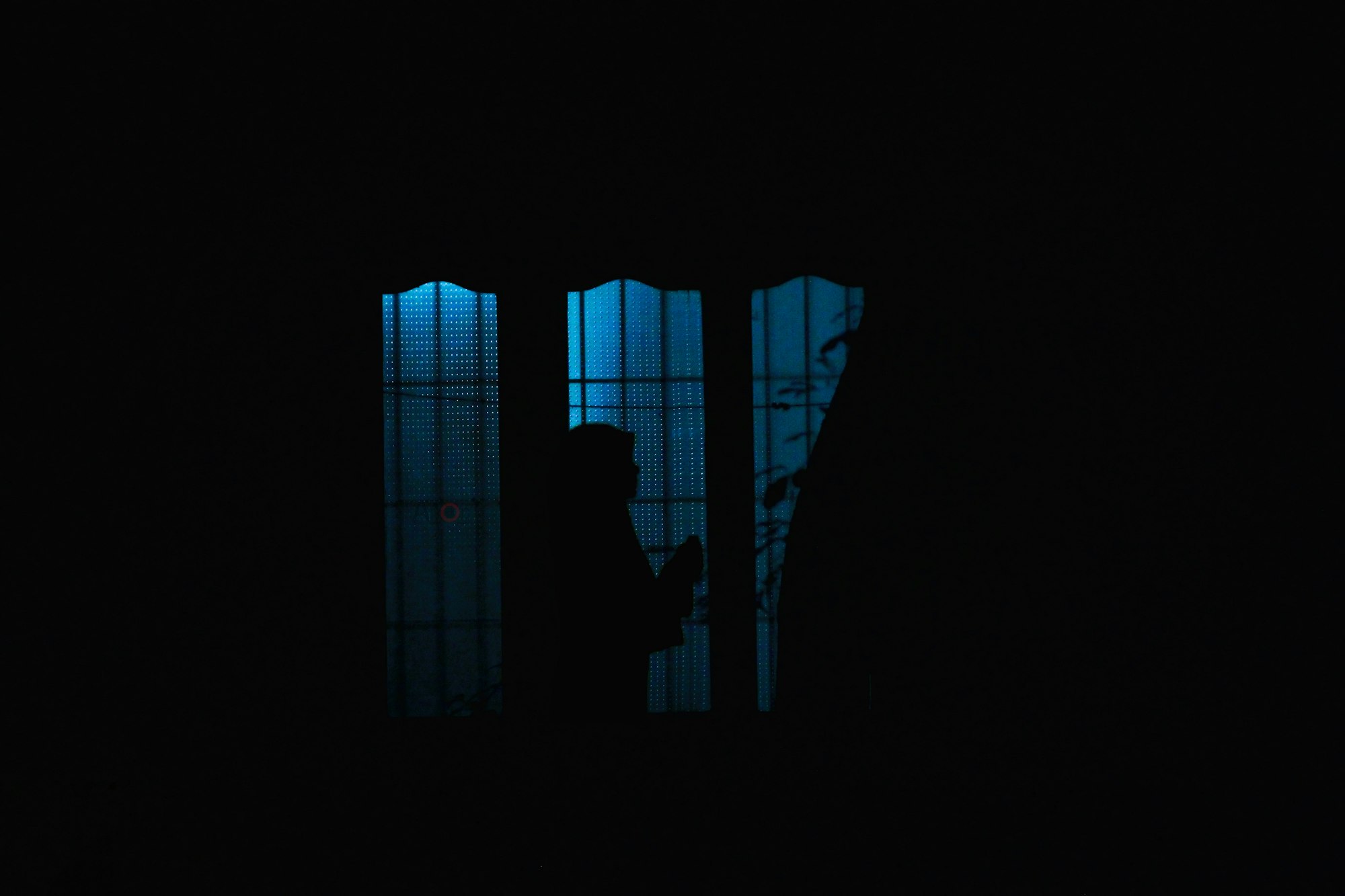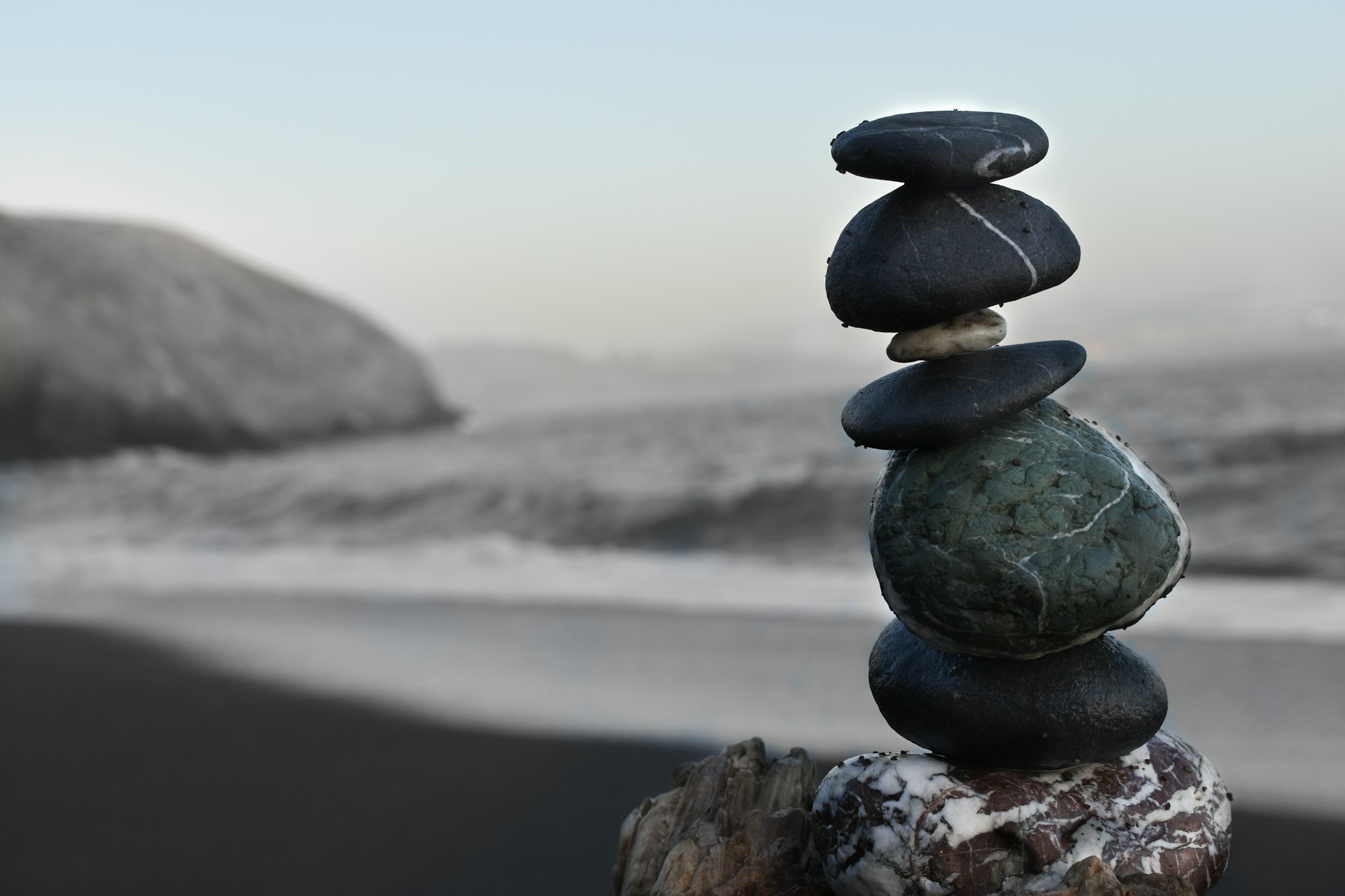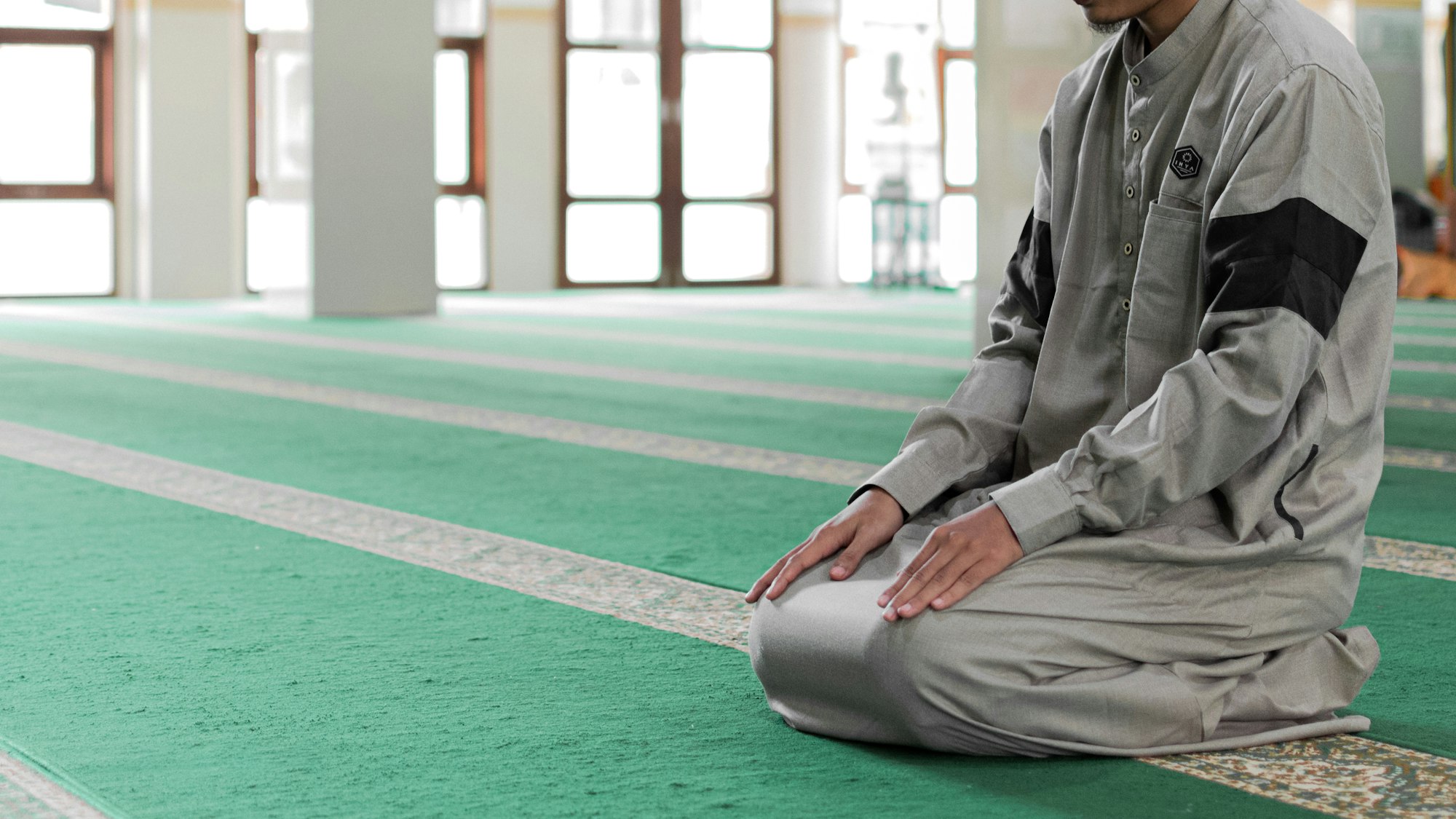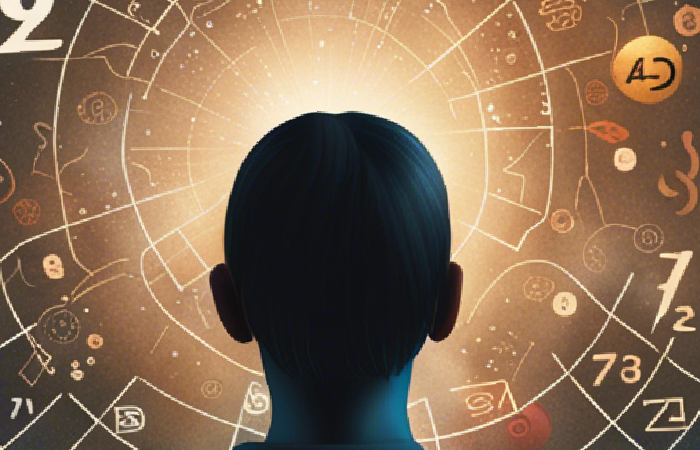The Art of Letting Go: How Dua for Forgiveness Helps in Mental Well-being
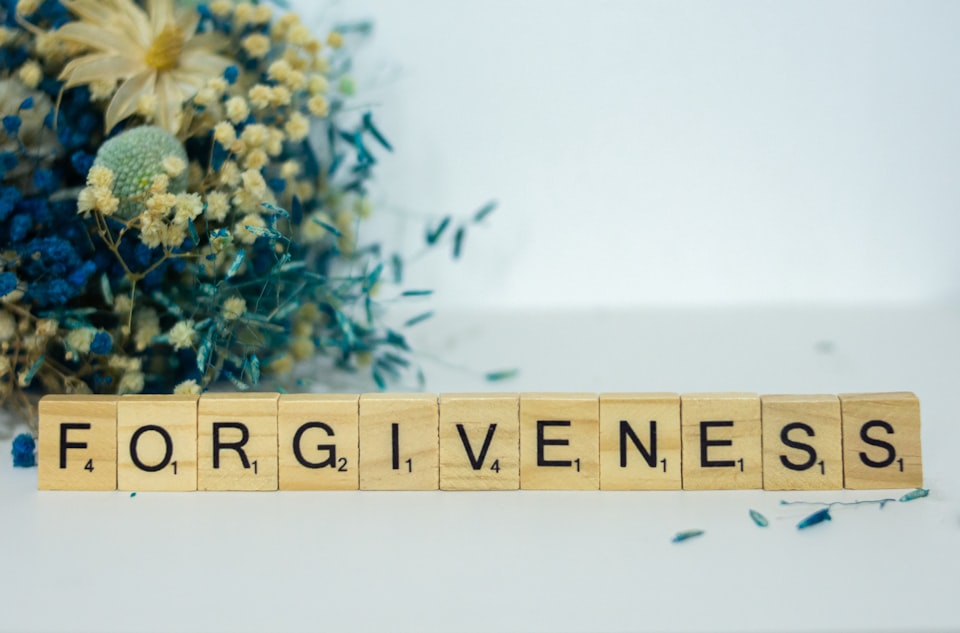
Forgiveness in Islam: A Path to Serenity - In the tapestry of Islamic teachings, forgiveness holds a place of paramount significance. Rooted in humility and compassion, the concept of forgiveness in Islam extends beyond a mere interpersonal gesture; it is a divine attribute and a cornerstone for cultivating inner peace. Allah’s mercy is infinite, and through seeking His forgiveness via dua (prayer or supplication), believers endeavor to cleanse their souls, rectify wrongdoings, and foster a harmonious coexistence with others. The Qur'an frequently highlights Allah’s merciful nature, encouraging Muslims to embody this virtue and seek His pardon through sincere repentance.
Mental Well-being in a Fast-paced World
Navigating through the unrelenting currents of today’s fast-paced world, the significance of mental well-being has never been more pronounced. The escalating pressures and complexities of modern life often lead to a plethora of stress, anxiety, and other mental health issues, emphasizing the necessity for practices that anchor the mind and nourish the soul. Mental well-being is not merely the absence of mental disorders but a state of holistic health that encompasses emotional, psychological, and social facets, enabling individuals to realize their potential, cope with stresses of life, and work productively. In this rapidly changing environment, the pursuit of mental tranquility and resilience becomes indispensable, providing a sanctuary of balance and coherence amidst the chaos.
Bridging the Two Worlds
As we unravel the layers of this article, we will delve into the intricacies of how the practice of seeking forgiveness through dua in Islam can be a powerful catalyst for enhancing mental well-being. The art of letting go, inherent in forgiveness, can serve as a beacon of light, guiding individuals through the tumultuous seas of life’s challenges and paving the way for a serene and fulfilled existence. By exploring the symbiotic relationship between the Islamic tradition of forgiveness and mental well-being, we aim to shed light on the therapeutic potential of spiritual practices in fostering a harmonious and balanced life in today’s dynamic world.
The Therapeutic Power of Dua
In the hustle and bustle of modern life, mental well-being often takes a backseat. Among the many remedies and practices that offer solace, the ancient traditions of religions provide tools for introspection and peace. One such tool in Islam is the practice of making a "dua." This article sheds light on the therapeutic power of dua and how it plays a pivotal role in emotional and mental healing.
1. Explanation of what a dua is and its significance in Islam:
"Dua" is an Arabic word that translates to "supplication" or "invocation." At its core, dua is a personal conversation between a believer and Allah (God in Islam). A sincere and heartfelt plea to the Almighty is made, seeking guidance, assistance, or forgiveness for one's actions or requesting a blessing. In Islam, prescribed prayers (salah) are recited throughout the day. However, a dua can be offered anytime in any language and situation. This demonstrates Muslims' faith, reliance, and trust in Allah, recognizing he is the source of all power and wisdom.
2. The various therapeutic benefits of making a dua:
-
Emotional cleansing: When one reaches out in dua, they are often pouring out their most profound fears, regrets, desires, and hopes. It's akin to baring one's soul, creating a space for emotional release. This act of opening up, even in silence, allows for a cathartic experience, freeing the heart from burdens it might have been carrying.
-
Reducing feelings of guilt: Human beings are not infallible; they make mistakes. Recognizing these mistakes and seeking forgiveness through dua helps in alleviating the heavy feelings of guilt. It serves as a reminder that while humans are prone to errors, there is always an opportunity to seek mercy and make amends.
-
Offering a sense of relief and lightness: The very act of turning to a higher power, acknowledging one's vulnerabilities, and placing trust in the divine brings about a profound sense of relief. This trust, combined with the act of letting go of one's worries and laying them before the Almighty, introduces a feeling of lightness, as if a weight has been lifted off one's shoulders.
-
Encouraging self-reflection and self-awareness: Making a dua isn't merely about asking; it's also about introspecting. It encourages individuals to assess their deeds, their intent, and their relationship with the Creator and creation alike. Through this introspection, one gains clarity, understands their shortcomings, and identifies ways to be a better version of themselves.
The act of releasing and surrendering, as supported by making dua in the tradition, goes beyond being a religious custom. It is a healing practice that can improve one's state, enabling them to navigate life challenges with clarity and emotional ease. Regardless of an individual's beliefs, acknowledging and valuing the potential of such spiritual practices can foster a more comprehensive and well-rounded approach to mental well-being.
Dua for Forgiveness in Islam
Letting go of past mistakes and seeking redemption is a common human need. Across cultures and religions, forgiveness plays an integral role in personal and spiritual growth. Islam, in particular, emphasizes the profound act of seeking forgiveness from Allah, known as Istighfar. Not only does this act solidify one's connection with the divine, but it also brings with it peace, humility, and mental well-being.
In Islam, seeking forgiveness is a deeply personal and powerful practice. It's not just about verbal utterance; it's an emotional plea to the Almighty to cleanse the soul of mistakes, whether intentional or unintentional.
The significance of seeking forgiveness (Istighfar) in Islam:
Istighfar, or seeking forgiveness, is one of the most emphasized acts in Islam. It demonstrates a believer's acknowledgment of their imperfections and shortcomings. The Qur'an, the holy book of Islam, is replete with verses encouraging believers to seek forgiveness, emphasizing that Allah is Forgiving and Merciful.
By regularly engaging in Istighfar, Muslims purify their souls, draw closer to Allah, and achieve a sense of mental peace. It also serves as a reminder that humans are fallible and that it's never too late to turn back and mend one's ways.
Common Duas for seeking forgiveness and their translations:
-
Astaghfirullah: The most common and concise Dua for seeking forgiveness, this phrase translates to "I seek forgiveness from Allah."
-
Astaghfirullaha Rabbi Min Kulli Zambiyon Wa Atoobu Ilaih: This phrase means, "I seek forgiveness from Allah, my Lord, from every sin, and I return to Him."
-
Allahumma inni zalamtu nafsi zulman kathiran wala yaghfirudh dhunuba illa anta faghfirli maghfiratan min indika warhamni innaka antal Ghafoorur Rahim: Translating to "O Allah! Indeed, I have wronged myself greatly, and none forgives sins except You. So grant me forgiveness and have mercy on me. Surely, You are The Most-Forgiving, The Most-Merciful."
Anecdotes or Hadiths highlighting the Prophet Muhammad's (PBUH) emphasis on regularly seeking forgiveness:
The Prophet Muhammad (PBUH) often stressed the significance of Istighfar in various Hadiths:
-
Emphasizing Regularity: Abu Huraira reported that the Messenger of Allah (PBUH) said, "By Allah, I seek forgiveness and turn to Allah in repentance more than seventy times a day." (Sahih al-Bukhari)
-
Forgiveness as a Door to Sustenance and Relief: The Prophet Muhammad (PBUH) said, "Whoever frequently seeks forgiveness, Allah will appoint for him a way out of every distress and a relief from every anxiety, and will provide sustenance for him from sources he does not expect." (Abu Dawood)
-
The Blessing of Night: Aisha (RA) reported that the Prophet Muhammad (PBUH) said, "In the last third of every night our Lord (the Blessed & the Exalted) descends to the lowest heaven and says; ‘Who is calling Me, so that I may answer him? Who is asking Me so that may I grant him? Who is seeking forgiveness from Me so that I may forgive him?’” (Sahih al-Bukhari)
In conclusion, the act of seeking forgiveness in Islam isn't just about rectifying one's relationship with Allah. It also serves to purify the heart, offer mental solace, and build resilience. As believers incorporate Istighfar into their daily lives, they not only strengthen their spiritual bond but also embark on a journey of personal and mental well-being.
Aligning Dua with Modern Mindfulness Practices
Letting go of past mistakes, regrets, and resentment is an essential step toward mental well-being. One of the ways many people around the world achieve this state of mind is through the act of dua, or supplication. At its core, dua is a powerful form of mindfulness, aligning closely with practices that are rapidly becoming cornerstones of mental health. This article aims to shed light on how the act of making a dua converges with the principles of modern mindfulness practices, ultimately contributing to mental and emotional harmony.
Explanation of mindfulness and its benefits:
Mindfulness refers to not directing your attention towards the current moment. It entails being engaged in your actions rather than getting entangled in thoughts about the past or worries about what lies ahead. Mindfulness has been associated with advantages, such as decreased stress levels, enhanced focus and concentration, improved management, and heightened self-awareness.
How the act of making a dua encourages mindfulness:
-
Being present in the moment: Dua requires full attention and sincerity. When one is making a supplication, they are engaged in a conversation with the Divine, which necessitates being present in the moment. This act of focused connection mirrors the very essence of mindfulness.
-
Recognizing and accepting one’s feelings without judgment: Dua is an open channel of communication where an individual presents their hopes, fears, regrets, and gratitudes. There is no judgment in dua; it’s a space of acceptance. This mirrors the practice of mindfulness, where one observes their emotions without any judgment.
-
Enhancing self-awareness and emotional regulation: Dua helps in reflecting upon one's actions, thoughts, and feelings. It’s a moment of introspection, leading to heightened self-awareness. Recognizing where one may have faltered and seeking forgiveness paves the way for better emotional regulation.
Comparison of Dua and modern therapeutic techniques:
-
Meditation: Meditation is a practice where an individual focuses their mind on a particular object, thought, or activity to train attention and awareness and achieve mental clarity and emotional calmness. Dua, like meditation, allows for a deep, personal connection and clarity, creating a bridge between oneself and the universe.
-
Affirmations: These are positive phrases that are repeated to challenge and control negative thoughts or self-doubt, and manifest positive change. Similarly, during a dua, believers recite verses and personal supplications, affirming their faith, seeking strength, and instilling positive beliefs.
-
Journaling: Writing down one's feelings, thoughts, and experiences is therapeutic, a moment of reflection and recognition. Dua, though verbal, carries the same essence. It’s a personal log of an individual's innermost desires, regrets, and gratitude, presented to a higher power.
While the methods and techniques might differ across cultures and traditions, the underlying essence remains the same: seeking a state of peace, clarity, and alignment with oneself and the universe. Dua, much like modern mindfulness practices, is a pathway to that state of mental well-being. Whether through supplication, meditation, affirmations, or journaling, these practices teach the art of letting go, emphasizing the profound impact of seeking forgiveness, not just from a higher power, but from oneself.
Mental Well-being and Letting Go
In the tapestry of life, we encounter a myriad of experiences, some filled with joy, and others fraught with mistakes and hurt. Seeking forgiveness and granting it is an ancient practice central to healing and growth, beautifully exemplified by the concept of Dua for Forgiveness in Islamic tradition. This article delves into the transformative power of forgiveness and how it paves the way for mental well-being.
-
The Connection Between Forgiveness and Mental Health:
Forgiving is not just a spiritual practice but a pathway to mental serenity. It helps in releasing the shackles of negative emotions that can cloud the mind and hinder personal growth. When one engages in Dua for Forgiveness, it acts as a soothing balm, allowing the individual to let go of anger, guilt, and resentment, fostering a sense of peace and spiritual connection. -
Releasing Negative Emotions:
Negative emotions are like toxins, contaminating the mind and soul. Holding onto anger and resentment can lead to a buildup of mental stress and manifest in physical symptoms. Through forgiveness, these negative emotions can be released, bringing about a sense of relief and tranquility. Dua for Forgiveness, in this context, is a catalyst for inner cleansing and spiritual rejuvenation. -
Breaking the Cycle of Rumination and Distress:
Rumination over past mistakes and hurt can lead to a vicious cycle of distress and mental agony. Engaging in forgiveness breaks this cycle, helping the individual to move forward and preventing the mind from being trapped in a loop of negativity. By practicing Dua for Forgiveness, one can find solace and strength to overcome past grievances and look towards a brighter future. -
Cultivating a Positive and Forward-thinking Mindset:
Forgiveness nurtures a positive and forward-thinking mindset. It encourages acceptance, understanding, and compassion, replacing bitterness with love and kindness. Dua for Forgiveness is an opportunity to reflect, learn, and grow, fostering a mindset that seeks harmony and mutual respect, which is essential for mental well-being.
Psychological Benefits:
-
Reduced Stress and Anxiety:
The act of forgiving reduces the burden of negative emotions, leading to a decrease in stress and anxiety. When individuals engage in Dua for Forgiveness, they experience a sense of calm and serenity, allowing them to handle life’s challenges with grace and resilience. -
Increased Feelings of Happiness and Contentment:
Forgiving others and oneself results in an increase in positive emotions, contributing to feelings of happiness and contentment. Through Dua for Forgiveness, individuals can reconcile with their past, make peace with their mistakes, and cultivate a sense of gratitude and fulfillment. -
Better Interpersonal Relationships:
Forgiveness is the cornerstone of healthy relationships. It builds trust, fosters understanding, and encourages compassion and empathy. Practicing Dua for Forgiveness enhances interpersonal relationships by promoting mutual respect and understanding, thereby creating stronger bonds between individuals.
The art of letting go through Dua for Forgiveness is a profound practice that not only nurtures spiritual growth but significantly contributes to mental well-being. It allows individuals to release negative emotions, break the cycle of rumination, and cultivate a positive mindset. The psychological benefits are manifold, including reduced stress, increased happiness, and better relationships. In embracing forgiveness, we find a path to inner peace and a harmonious existence.
Real-life Testimonials/Case Studies
- A Journey from Despair to Hope: Fatima’s Story
Fatima, a young mother of two, found herself engulfed in the throes of depression after a series of unfortunate events. With a crumbling marriage and mounting financial issues, life seemed bleak. It was during this dark time that Fatima discovered the transformative power of Duas for forgiveness. She began reciting them daily, seeking solace and forgiveness. Slowly, she felt a shift within her—a lightening of her burdens and a newfound strength. Fatima’s journey showcases the immense healing power of Duas, allowing her to rediscover hope and rebuild her life.
- Overcoming Addiction: Ahmed’s Path to Redemption
Ahmed's story is one of struggle and redemption. Battling a severe drug addiction, he felt trapped in a cycle of guilt and despair. The introduction of Duas for forgiveness in his life marked a turning point. As he sought forgiveness and mercy, he felt a renewed sense of purpose and a determination to overcome his addiction. Ahmed’s journey is a testament to the transformative power of Duas, aiding in his recovery and helping him re-establish connections with his loved ones.
- Healing from Trauma: Aisha’s Emotional Renaissance
Aisha, a survivor of a traumatic event, battled severe anxiety and post-traumatic stress disorder (PTSD). The traditional therapeutic methods offered temporary relief, but it was the incorporation of Duas for forgiveness that facilitated her emotional transformation. As Aisha recited Duas, she experienced a gradual healing process, leading to self-forgiveness and the ability to let go of her painful past. Her story illuminates the profound impact of Duas in providing mental solace and fostering resilience.
- Rediscovering Purpose: Bilal’s Reawakening
After a near-death experience, Bilal found himself questioning his purpose and direction in life. The practice of saying Duas for forgiveness became his compass, guiding him through the fog of existential doubts. Seeking forgiveness and reflecting on his life, Bilal experienced an emotional reawakening, which led to a renewed sense of purpose and a deeper connection with his faith and community. Bilal’s experience highlights how Duas can be a guiding light in rediscovering one’s path and purpose.
The transformative journeys of Fatima, Ahmed, Aisha, and Bilal demonstrate the profound impact of Duas for forgiveness on mental well-being. These testimonials illuminate the healing powers of this spiritual practice, showcasing its ability to bring solace, foster resilience, and renew a sense of purpose. The art of letting go through Duas for forgiveness is a beacon of hope and a testament to the strength of the human spirit in overcoming adversity.
Practical Tips for Incorporating Dua in Daily Life
In a world of distractions, pressures, and constant stimulation, the human mind often yearns for peace, tranquility and a chance to reflect on oneself. Seeking forgiveness within traditions serves as a religious channel and provides therapeutic benefits for our mental well-being. Dua, which means supplication in Arabic, is more than a way to ask God for something; it also allows us to converse with ourselves and find solace. How exactly does Dua contribute to our well-being when we seek forgiveness? Let's delve into this topic further.
1. Setting specific times in the day for Dua:
Like meditation, mindfulness, or any other self-care ritual, consistency in Dua can be beneficial. Muslims are encouraged to make Dua after the five daily prayers. This can act as a reminder to pause, reflect, and engage in this act of personal communion. For those who don't adhere to these timings, setting aside specific moments during the day, perhaps during sunrise or before going to bed, can act as consistent checkpoints for reflection.
2. Incorporating Dua during moments of introspection:
Dua doesn't have to be restricted to particular times. Moments of introspection can spontaneously arise when you're taking a walk, listening to music, or even reading. Seize these moments to make a Dua. This coupling of introspective moments with Dua can amplify the clarity, understanding, and peace that often come with deep reflection. For instance, if you feel regret about a particular action, instead of letting it fester, use the moment to seek forgiveness through Dua.
3. Using Dua as a means of grounding oneself during moments of distress:
Life often brings moments. Prayer can be a source of comfort during times of difficulty, whether our mistakes or external factors cause them. When burdened by guilt, anxiety, or sadness, we can pray to express our emotions, seek guidance, and find strength. It is comforting to know that our concerns are being heard, and we gain an understanding through articulating our feelings in prayer. Better manage them.
Dua encompasses more than the ability to connect with power – it also has the power to bring mental clarity, peace, and overall well-being. By using Dua to seek forgiveness, one can find a path toward accepting one's actions, seeking redemption, releasing the heavy burdens on one's mind, and integrating Dua into our lives, whether by setting times or taking moments for reflection can be truly fulfilling. It allows us to navigate life's challenges with understanding and serenity gracefully.
Conclusion
Letting go can be a challenging art. Every individual, at some point in their lives, struggles with the burdens of regret, guilt, or resentment. These emotions can weigh heavily on our minds, diminishing our capacity for happiness, peace, and mental well-being. However, within the folds of Islamic teachings lies a remedy that can alleviate these burdens and pave the way for psychological peace: the Dua for forgiveness.
The act of seeking forgiveness is more than just an Islamic ritual; it's an emotional catharsis. The Dua for forgiveness allows individuals to articulate their regrets, voice their mistakes, and, in the process, find peace with themselves and their Creator. Through this Dua, a person recognizes their imperfections and, rather than letting them fester into anxiety or self-loathing, presents them before the Almighty, seeking solace and pardon.
The Dua for forgiveness isn't just a momentary lapse into introspection. It is a consistent and mindful practice that encourages reflection, self-awareness, and personal growth. By regularly turning to this Dua, believers can train their minds to be more forgiving of themselves, which, in turn, promotes a more positive mental state. Over time, this nurtures resilience, self-compassion, and an overall sense of well-being.
Reiterating the essence of this Dua emphasizes its profound impact on mental health. When a person genuinely seeks forgiveness, they are not just moving towards spiritual betterment but are also actively engaging in a therapeutic process that mends the soul.
In the fast-paced world of modernity, where stressors are manifold and mental health challenges are on the rise, integrating the profound wisdom of Islamic practices with contemporary mental health strategies offers a holistic and balanced approach. Embracing both avenues does not mean negating one for the other. Instead, it means recognizing the depth of resources available across traditions and disciplines.
For those navigating the turbulent waters of mental and emotional distress, weaving in the Dua for forgiveness with modern therapeutic tools can offer a sanctuary of calm and clarity. The combination can be a formidable force, ensuring a sound mind, a serene heart, and a soul at peace with its existence.
In the quest for mental well-being, the age-old wisdom of Islamic teachings, particularly the Dua for forgiveness, holds a promise. It serves as a gentle reminder that in letting go and seeking pardon, one can indeed find peace, healing, and rejuvenation. By harmoniously fusing this with contemporary mental health practices, we pave the way for a holistic approach to wellness that honors both our spiritual and psychological needs.
Overall
Forgiveness is an important aspect of mental well-being, as research has shown that it can lead to lower levels of stress and anxiety, improved mood, and better physical health outcomes. Resentment and negative emotions can be common in the workplace and can lead to tension, decreased productivity, and even toxic work environments. Learning to forgive can help us let go of negative emotions and promote inner peace and emotional well-being. It can also lead to stronger relationships, increased productivity, and better overall health. Here are some steps to help you practice forgiveness:
-
Acknowledge the hurt: Recognize the pain that you have experienced and how it has affected you emotionally and physically.
-
Choose to forgive: Forgiveness is a choice that you make for yourself, not for the person who hurt you.
-
Practice empathy: Try to understand the other person's perspective and what may have led them to hurt you.
-
Let go of resentment: Holding onto resentment only hurts you in the long run. Letting go of negative emotions can help you move forward.
-
Practice self-care: Forgiveness can be a difficult process, so it's important to take care of yourself emotionally and physically.
Forgiveness is a choice that can have a positive impact on your mental and emotional well-being. It can help you let go of negative emotions and promote inner peace and emotional well-being.
Citations:
[1] https://www.linkedin.com/pulse/art-forgiveness-how-letting-go-can-enhance-mental-wellness-coach
[2] https://www.mindfulleader.org/blog/84762-the-art-of-letting-go-5-steps-to
[3] https://theartoflettinggo.ca
[4] https://www.washingtonpost.com/wellness/2023/04/20/forgiveness-mental-health-benefits/
[5] https://web.mei.edu/viewport?FilesData=Forgiveness+And+Letting+Go+In+Emotion+Focused+The.pdf&digit=L18u032
[6] https://buildingmomentumlivinglife.com/2017/02/12/forgiveness-the-art-of-letting-go/
Halal and Dua: Spiritual Foundations for a Wholesome Life
The tenets of Islam encompass all facets of a believer's life, guiding not only their relationship with the Divine but also with the world around them. Among these teachings, two concepts stand out as cornerstones: Halal, the permissible, and Dua, the act of supplication. While one might perceive these principles as separate, they intertwine in the holistic spiritual fabric of a Muslim's life, offering pathways to both ethical living and spiritual communion.
Halal: Choosing the Righteous Path
Halal, which literally translates to "permissible" in Arabic, primarily concerns what is allowed in Islamic law. Most commonly associated with food, Halal's scope is expansive, covering aspects from business dealings to personal relationships. By adhering to what's Halal, believers ensure they lead a life in line with divine guidance, emphasizing purity, kindness, and justice.
The Benefits of Following Halal:
- Physical Well-being: Consuming Halal food, which is free from impurities, promotes a healthy body.
- Moral Integrity: Engaging in Halal transactions and relationships fosters an ethical character.
- Spiritual Alignment: Living a Halal life paves the way for spiritual closeness with the Almighty.
Dua: The Heart's Conversation with the Creator
Dua, or supplication, is the believer's heartfelt appeal to Allah. It's a personal, intimate dialogue where one pours out desires, fears, hopes, and gratitude. Duas can be spontaneous or based on prophetic traditions, but their essence remains: a connection with the Divine.
The Healing Power of Dua:
- Emotional Relief: In moments of distress, Dua offers solace and a sense of being heard.
- Spiritual Growth: Regular supplication enhances a believer's connection and reliance on Allah.
- Guidance: Through Dua, one seeks guidance, wisdom, and support from the Almighty.
Halal and Dua: The Interplay
When examined together, Halal and Dua emerge as two sides of the same spiritual coin. While Halal guides a Muslim's actions ensuring they align with righteousness, Dua maintains their bond with the Creator, seeking blessings and wisdom. The interplay between the two is evident: a believer consumes Halal sustenance and then, with a pure heart, raises hands in Dua, forging a life balanced between ethical living and spiritual devotion.
Islam offers a comprehensive blueprint for a wholesome life, with principles like Halal and Dua at its core. By understanding and practicing these concepts, believers not only cultivate a life of moral excellence but also fortify their relationship with the Divine, ensuring a life resonating with purpose, piety, and peace.
